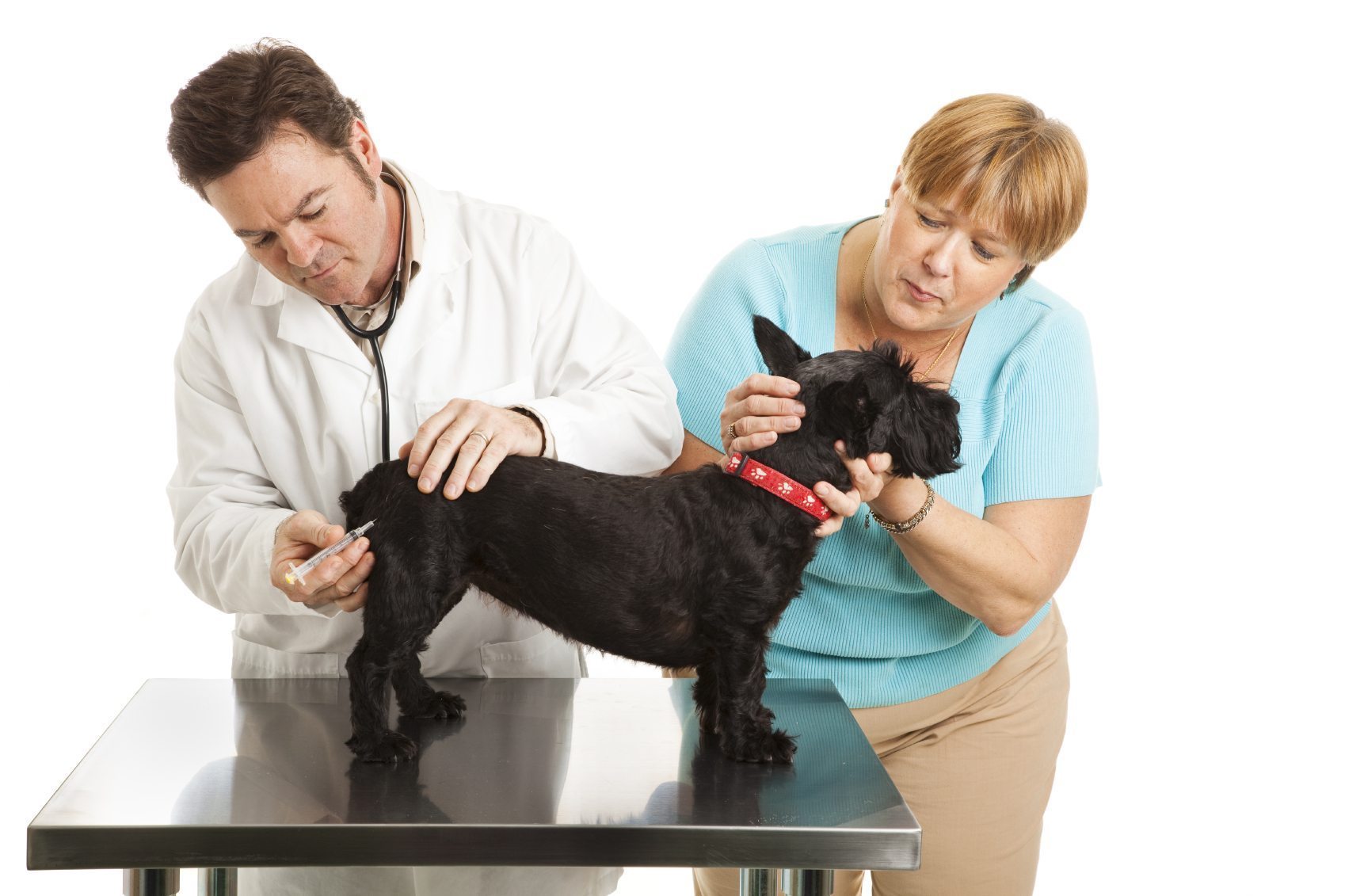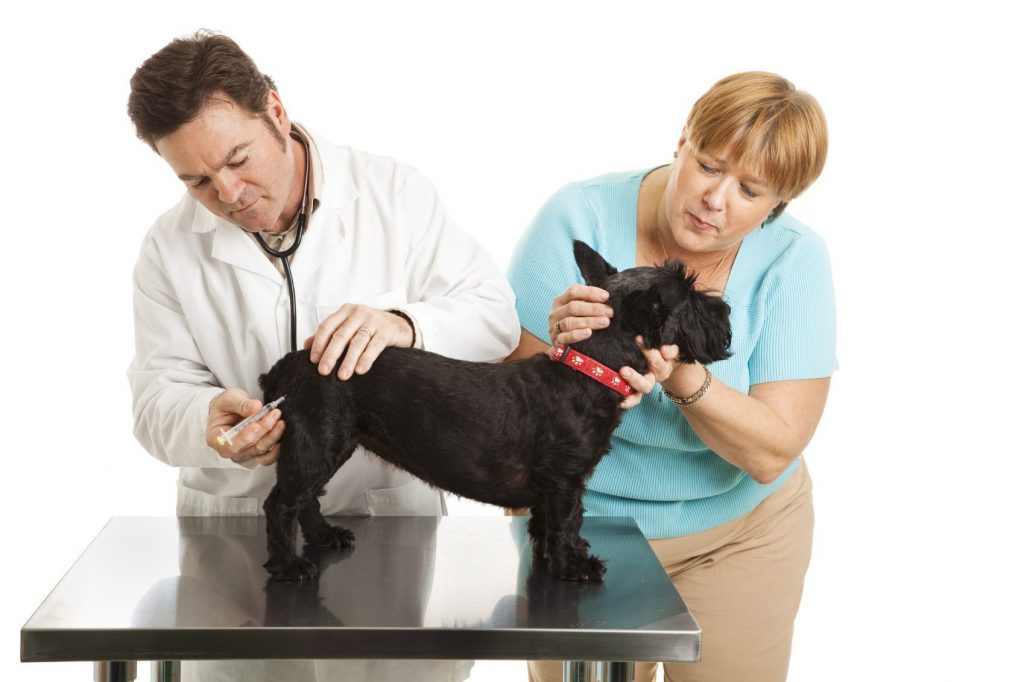This information should not be considered a substitute for veterinarian advice. Please consult with your veterinarian about specific pet vaccines and potential side effects.
Diseases Protected From Pet Vaccines
Whether you have a new puppy or kitten, or you have had a pet for quite some time, inevitably the topic of immunization comes up at your veterinarian’s office. The main purpose of vaccines is to protect your dog or cat from diseases such as:
• Canine parvovirus
• Canine distemper virus
• Canine adenovirus
• Hepatitis virus
• Feline panleukpenia or feline parvo
• FIV – feline AIDS
Spread The Vaccines Out
While vaccination is usually quite safe, side effects can occur and even be life-threatening. One of the most common emergency veterinarian cases are from people who bring their puppy or kitten in that has recently been vaccinated. Most of them reported how they just wanted to sleep, were lethargic, loss their appetite and were hot to the touch.
All of this occurs because their young bodies are trying to fight off the live virus that was just injected into them, along with other reactive additives known as adjuvants – that enhance the immune response. It is very similar to how you feel when you are fighting the flu. This can occur when puppies and kittens have been given a large number of vaccines such as feline panleukopenia, chlamydia immunization, feline calicivirus vaccine, feline leukemia, felines AIDS injection and a rabies vaccine. Ask your veterinarian about spreading out these injections if that is an option.
Post Vaccination
One of the best things you can do after any vaccination is make sure they have a nice, warm place to rest with plenty of water. Give them some strong-smelling food such as fish for cats and chicken for puppies to tempt them to eat. If they are eating and drinking enough fluid, that is a good sign, however if not, they can dehydrate quickly. Contact your vet immediately if your puppy or kitten continues not to eat or drink enough after being immunized.
Keep in mind that the injection site may hurt after being vaccinated. It can be red, painful and swollen. Be careful when petting your puppy or kitten in the neck or head area as it may provoke a cry or growl. You could get scratched or bitten, so be gentle and careful where you touch them. Some vaccines are given in their hind legs and can also be painful to the touch.
Additional Side Effects of Pet Vaccines
Contact your veterinarian if you notice any of the following symptoms:
• A large lump forms or appears to be getting larger
• Appetite worsens
• Depressed
• Infection
• Hair loss
• Abscess
• Diarrhea
• Vomiting
• Coughing or sneezing
• Rapid heart rate
• Swelling of the face and/or throat
• Difficulty breathing
Any vaccine has the potential for causing a reaction. Ask your veterinarian about the type of vaccine that is required for your pet and any reaction to watch out for. Please note that ‘killed’ vaccines are more likely to cause a reaction than the ‘live’ vaccines. This is because the killed vaccines contain additives that stimulate a strong immune reaction in the body. Talk to your veterinarian about each and every vaccine and make sure you are not over-immunizing your pet.


